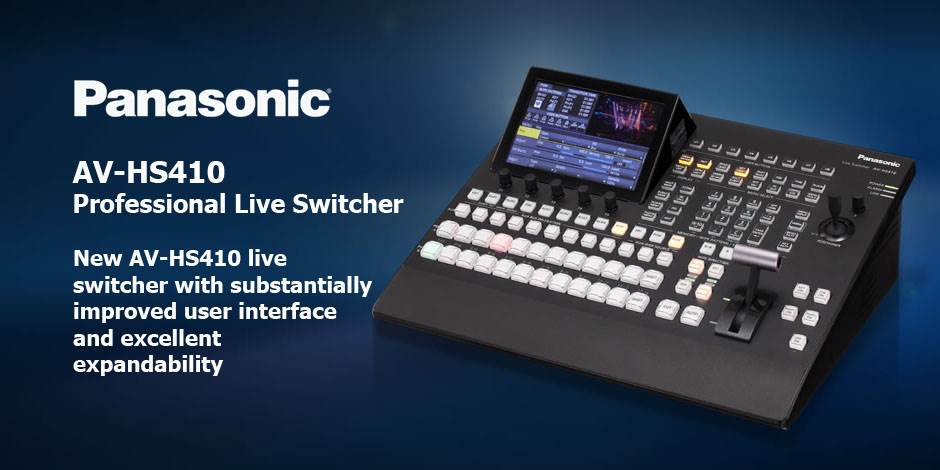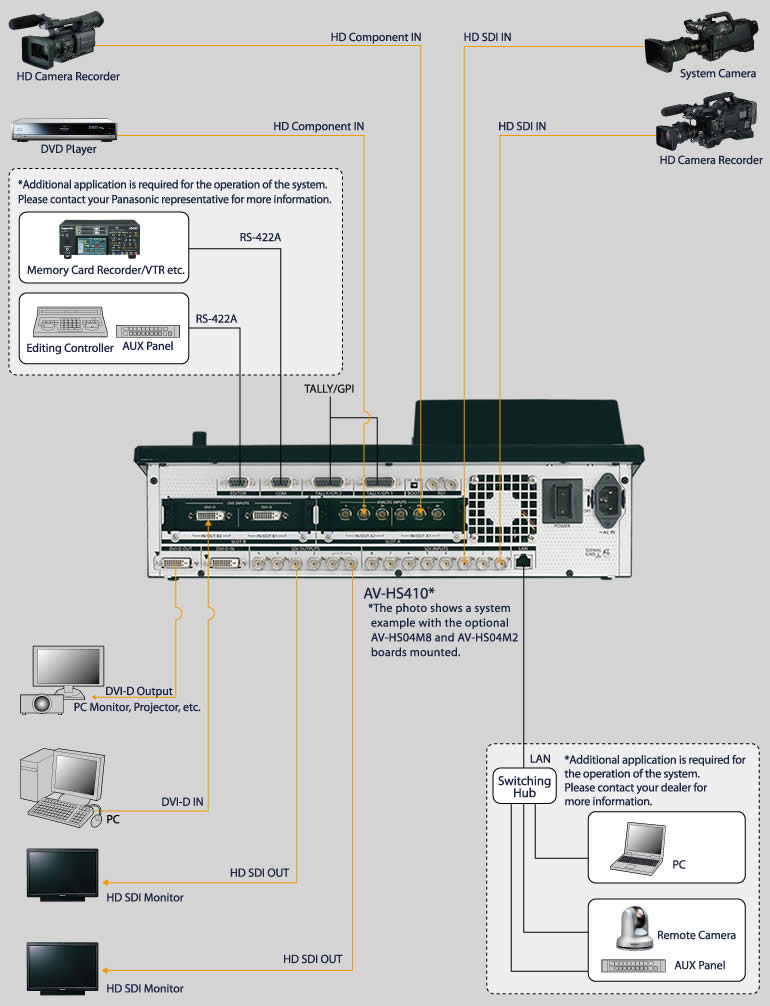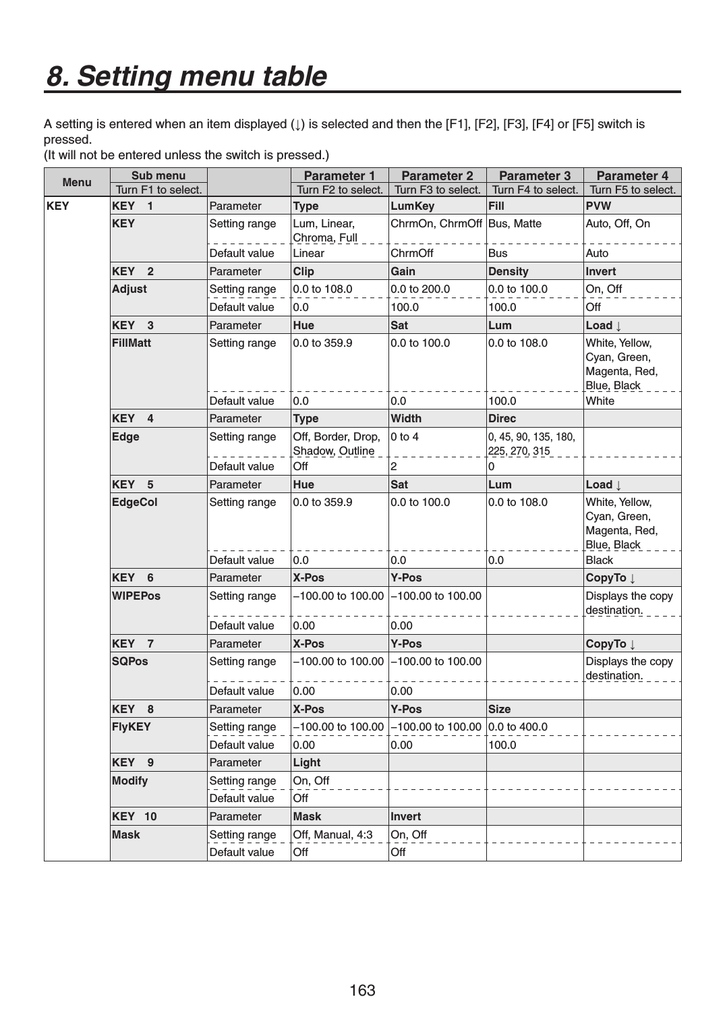

Head on this page.

TOP > Switchers & Mixers > AV-HS410
The AV-HS410 is an HD/SD selectable 1ME Switcher that rivals many high-end switchers by incorporating a host of inputs and outputs, effects and system expandability into its compact, 19 type, half-rack size. It comes standard with 9 inputs and can increase a maximum capacity of.
Panasonic Av Hs410 Manual
| A Rival to High-End Switchers in Performance and Ease of Operation into a Compact, Integrated BodyLive Switcher AV-HS410 Samsung galaxy j3 user manual verizon. With a thickness of only 7.9 mm and a width of 71.05 mm, the Samsung Galaxy J3 is apparently the slimmest and compact version ever. Samsung Galaxy J3 ManualThis Samsung Galaxy J3 Manual guide provides information for your basic understanding of the phone as well as detailed steps to explain the use of the phone. New Galaxy J has a newly designed front that looks amazing and raises the screen experience to a new level. The smoother, 4.56 mm solid black frame gives you an enveloping wide screen experience. It also has a smoother frame of only 4.56 mm and a grip-friendly rounded shape that is comfortable in your hand. Use your smartphone longer than ever with a new and improved 2600 mAh battery.
Nine Standard Inputs/Six Standard Outputs (Max. 13 Inputs/10 Outputs)The AV-HS410 comes standard with Nine inputs (Eight SDI (HD/SD) and One DVI-D) and Six outputs (Five SDI (HD/SD) and One DVI-D). Two expansion slots accommodate either input or output optional boards, providing a maximum of 13 inputs, and 10 outputs. HD/SD Multi-Format SupportThe AV-HS410 supports standard HD/SD multi-format, including 1080/24PsF. System frequency is 59.94 Hz/50 Hz/24 Hz switchable. This makes the system ideal for digital cinema production and worldwide operation. A wide range of optional boards also allows the input and output of analog component and various other signals. (Please see the table below for more details.)
Various Switching Functions and High Image Quality are Achieved with an Intuitive User Interface. Built-in Frame Synchronizer for All Input ChannelsAll input channels feature a built-in frame synchronizer for use in switching unsynchronized video signals. A gen-lock function also supports synchronizing systems based on external sync signals (black burst or tri-level). Up-Converter, Dot by Dot and Video ProcessingThe AV-HS410 is equipped with an SD/HD up-converter function for four inputs, and a dot by dot function for eight inputs. Dot by dot input can be used for P-in-P display of HD images from SD footage without degradation. A video processing function with color correction is also provided for eight inputs. Four Aux Buses and Two P-in-PTwo P-in-P buses and four Aux buses are provided. Borders and software effects can be applied to the P-in-P buses. In addition to a Cut transition, the bus transition function (P-in-P bus and Aux bus switching effect) also enables a Mix transition (Aux 1 only). Flexible operation is achieved by combining Aux buses and M/E sections. Versatile Transitions and EffectsIn addition to standard wipe, mix and cut effects, DVE transition patterns using two channels, such as reduce, slide, squeeze and 3D wipe are included. New Video Memory Function for Two InputsTwo inputs for still (STILL) or moving (CLIP) images can be saved in Video Memory, and selected as bus footage. Moving pictures can be recorded and played with key signals (for a maximum of approximately 20 seconds/600 frames with 59.94i). Moving picture and still files can also be transferred from an SDHC/SD Memory Card or PC by a LAN network.* * The software of the camera recorder may need to be upgraded depending on the version of the AV-HS410. Please refer to the 'service and support' on the Panasonic Website (https://pro-av.panasonic.net/). SDHC/SD Memory Card SlotVideo memory, shot memory, event memory and set-up data can be saved to SDHC/SD Memory Cards. Primatte® High-Quality Chroma KeyLinear, luminance and chroma keying are provided. Chroma keying employs the Primatte® algorithm, which is widely used as a plug-in for nonlinear editors. The same excellent Primatte® image quality that is used worldwide for movies, TV programs, music videos and commercials is achieved by the AV-HS410's real time processing. Superior blue-spill processing naturally combines translucent objects, such as thin cloth and glass, with background colors. Extremely fine objects, such as individual strands of hair, are faithfully reproduced. One DSK channel is also provided to add borders, shadows, and other edge effects. * Primatte® is a registered trademark of IMAGICA DIGIX Inc. The copyrights of Primatte® belong to IMAGICA DIGIX Inc. The patents for Primatte® belong to IMAGICA DIGIX Inc. Shot MemoryUp to 100 image effects, such as background transition patterns, P-in-P sizes and border widths, can be registered in shot memory for instant retrieval. The AV-HS410's Effect Dissolve function enables smooth switching from a current image to one of the images or operations registered in the shot memory. Event MemoryUp to 64 of the image effects that are registered in the shot memory can be sequentially registered in the event memory for instant retrieval. This allows highly expressive consecutive effects to be easily and smoothly executed. Up to 100 event memories can be registered. New Memory PreviewThis new function lets you preview the shot memory and event memory content. It allows image effects to be easily confirmed while on-air with this 1 M/E switcher. This is particularly convenient for live operation. * The resolution of images output from memory is slightly lower than the usual resolution. Toshiba e-studio 2505ac. TTEC disclaims any warranty relating to the quality and performance of Software. Built-in 178 mm ( 7 inches) Color LCD Monitor with Multi-Mode DisplayA 178 mm ( 7 inches) color LCD monitor with WVGA (800 x 480) resolution is built into the control panel. It can be switched to a wide variety of display modes, including setting menus, image monitoring and waveform/vectorscope. (See the table below.) It also supports the MultiViewer and Memory Preview functions. AV-HS410 provides comfortable operation eliminating the need to view multiple displays in different locations. Enhanced MultiViewer DisplayThe MultiViewer function lets you split the screen to display PVW, PGM and all source images on a single screen. It enables 4/5/6/9/10/16 split screens. The input signal name, audio level meter and 4:3 marker can also be overlaid onto each screen, and a clock can be displayed. This makes it possible to efficiently operate a multi-channel system with a single monitor. Easy-to-Use Panel LayoutFeatures such as a total of 12 crosspoint buttons in each A bus and B bus (for a maximum of 22 with the Shift function) allow direct control with this simple panel layout. Function settings and registrations are made quickly and intuitively with the LCD monitor's matrix menu and rotary switches. Various functions can also be assigned to eight user buttons for one-touch operation. This level of easy operation supports speed and accuracy in live-relay operation. Expanded Functions with Plug-in Software and Optional Boards Plug-in Software Created with a Software Development Kit*Plug-ins allow flexible expansion of software-based functions. A Software Development Kit (SDK) is provided so that third parties or SI enterprises can freely develop the software to add new functions to the AV-HS410. This will enable the system to meet an even wider range of needs, such as controlling the AV-HS410 with an external controller or PC, operating cameras and other devices from the AV-HS410, and outputting status data related to the live switcher or image sources. * Please ask your dealer for details. Block Diagram *1: When external synchronization is selected as the reference signal setting, the reference signal is input. When internal synchronization is selected, the reference signal is output. | ||||||||||||||||||||||||||||||||||||||||||||||||||||||||||||||||||||||||||||||||||||||||||||||||||||||||||||||||||||||||||||||||||||